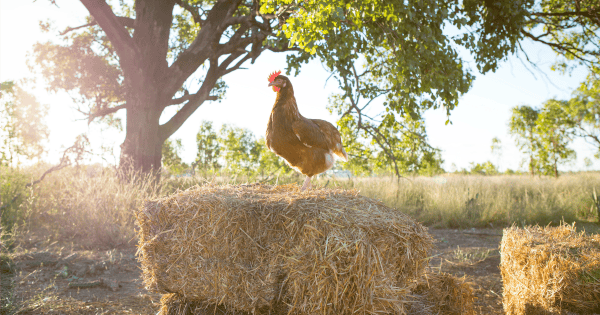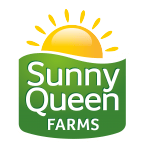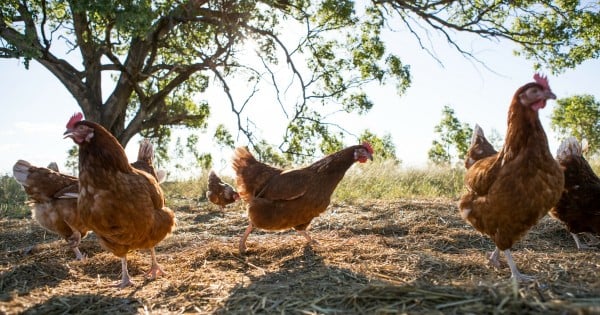

I love eggs. During the dark days of the 90s when there was some kind of ridiculous speculation that eggs had bad cholesterol or something, I was bereft.
Now we know that eggs are basically an adorable nutritional package sent from above, full of protein, vitamins, omega-3 fats, and antioxidants.
I really can’t recommend the egg enough, and in my enthusiasm, suggested to my long-suffering partner that we invest in a chicken coop in the shared backyard of our rented city flat to ensure a never-ending supply of happy and delicious eggs.
I was cruelly rebuffed and so have returned to the supermarket aisles to fuel my habit. Now, I always purchase free-range eggs. Apart from any moral concerns for the welfare of our chooks, they also just seem to taste better.
Not all eggs are created equal, though. At the moment, eggs labelled “free-range” in Australia don’t have to adhere to a national standard, so while you may envision chickens basking in sunlight and pecking around wide open spaces, the reality may be considerably less idyllic.
Managing Director of Sunny Queen Australia, John O’Hara, gave me some pointers on what to look out for.
“For consumers, the important thing to do is to read the labels on the eggs that they’re purchasing. Check out the credentials of the farm they are purchasing from — like Sunny Queen Farms — are they ECA accredited, HACCP accredited, are they independently audited? Do they comply with the Model Code of Practice for the Welfare of Animals?” he said.



Top Comments
Then there are the hens who have 'access' to the outside but dont make use of it because there's no food, water, green pick or overhead cover.
I love the "girls" too - makes them sound very loved!